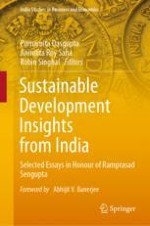2021 | OriginalPaper | Buchkapitel
Recourse to the Circular Economy: The Path Ahead
verfasst von : Robin Singhal
Erschienen in: Sustainable Development Insights from India
Verlag: Springer Singapore
Aktivieren Sie unsere intelligente Suche, um passende Fachinhalte oder Patente zu finden.
Wählen Sie Textabschnitte aus um mit Künstlicher Intelligenz passenden Patente zu finden. powered by
Markieren Sie Textabschnitte, um KI-gestützt weitere passende Inhalte zu finden. powered by
